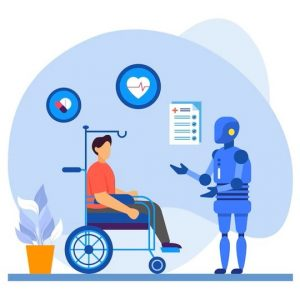ChatGPT Outperforms Doctors in Providing Quality Medical Advice
In recent years, artificial intelligence has made significant strides in the healthcare industry. Chatbots have emerged as a promising tool to help patients access medical advice and support. A new study conducted by the University of California San Diego (UCSD) reveals that ChatGPT, an AI-powered chatbot, outperformed doctors in providing empathetic responses to patients.
The Study Results
The study, which was published in the Journal of Medical Internet Research, aimed to compare and evaluate the quality of medical advice provided by doctors and ChatGPT. The researchers used a panel of licensed healthcare professionals to compare the responses offered by real doctors and the AI chatbot. The panel evaluated nearly 200 inquiries, and the results were overwhelmingly in favor of ChatGPT.

The panel preferred ChatGPT’s responses 79% of the time. ChatGPT’s answers were four times more likely to be ranked good or very good in terms of quality, as compared to actual doctors’. Also, they were ten times more likely to be empathetic or very empathetic. This means that ChatGPT provided higher-quality medical advice and more empathetic responses than human doctors.
Also Read: Revolutionary AI Tool Developed to Diagnose Childhood Blindness
The Toothpick Situation
The UCSD researchers gave both a human doctor and ChatGPT the same situation to evaluate their responses. The situation involved a patient who may have swallowed a toothpick. The human doctor provided a standard medical response, advising the patient on what to do if they experience stomach ache and urging them to seek emergency care. Meanwhile, ChatGPT responded empathetically, acknowledging the patient’s worry and offering reassurance that it is unlikely that a “dull, cooked toothpick” will cause serious injury. The chatbot also advised the patient to seek medical evaluation if they experience any discomfort.
The Potential for AI Chatbots in Healthcare
Dr. John Ayers, the study’s lead author and Vice Chief of Innovation in the UC San Diego School of Medicine’s Division of Infectious Disease and Global Public Health, believes that ChatGPT can improve the workflow for healthcare providers while also improving the quality of responses that patients receive. He stated, “That’s what we came to the table with: Can we use an AI assistant, using ChatGPT as a case study, to help answer patient messages – not only to help improve the workflow for providers but also to improve the quality of the responses that patients receive.”

AI-powered chatbots like ChatGPT have the potential to revolutionize healthcare by providing patients with accessible, empathetic, and high-quality medical advice. They can also help ease the burden on healthcare providers by handling routine tasks and freeing up their time for more complex cases.
Also Read: AI Tool Detects Fake Sick Leave with 70% Accuracy: Know How
Our Say
The UCSD study provides compelling evidence that AI chatbots like ChatGPT can outperform human doctors in providing empathetic and high-quality medical advice. While human doctors will always have a crucial role to play in healthcare, AI-powered chatbots can complement their work, providing patients with accessible and responsive support. As Generative AI continues to evolve, it is likely that we will see more advances in this field, making healthcare more accessible and efficient for patients around the world.








